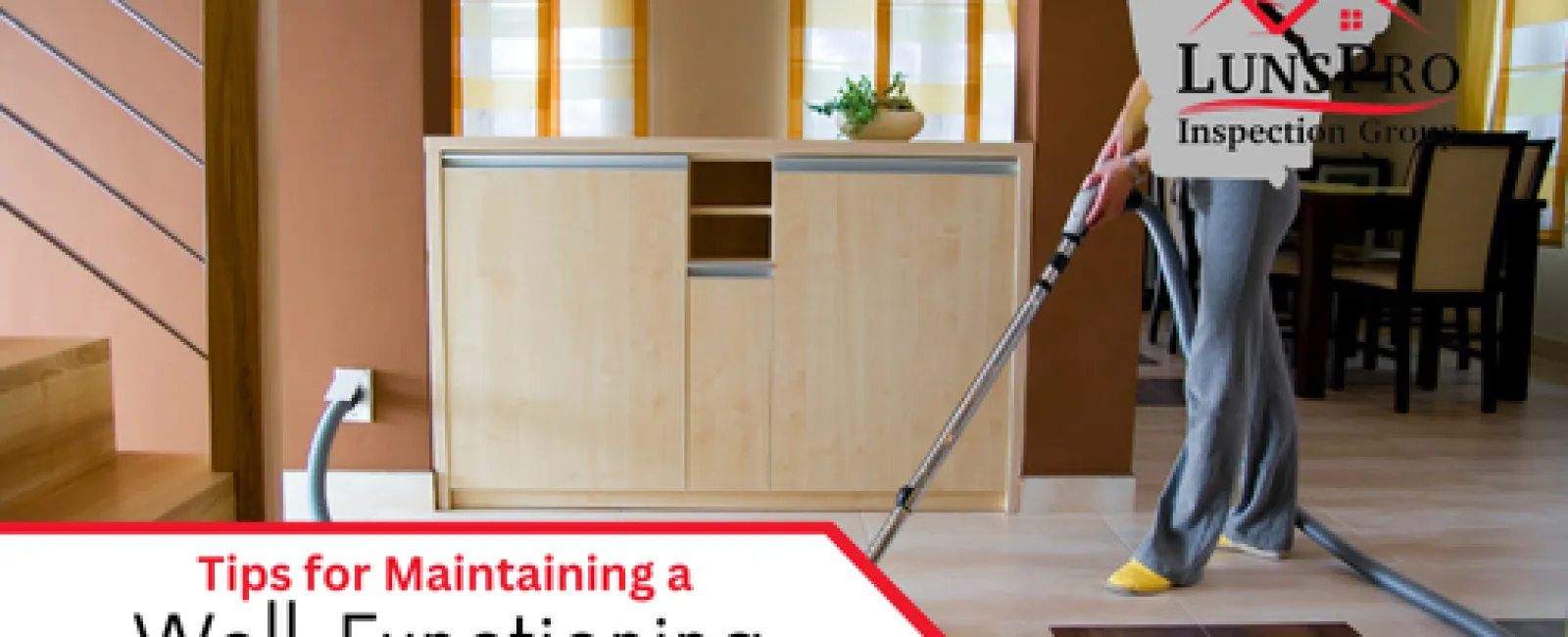Central vacuum systems are a convenient and efficient way to keep your home clean, providing better suction power and air quality compared to traditional vacuum cleaners. However, like any appliance, central vacuum systems require regular maintenance to ensure they remain in optimal working condition. Whether you've recently installed a central vacuum system or have been using one for years, following a few simple tips can significantly prolong its lifespan and efficiency. Here's a comprehensive guide to maintaining a well-functioning central vacuum system.
What is a Central Vacuum System?
A central vacuum system is a built-in vacuuming solution designed to remove dirt and debris from a home or business. Instead of pushing a traditional vacuum cleaner around, users can connect a lightweight hose to inlets installed throughout the building. The debris is transported through hidden tubing to a central collection unit, typically located in a garage or utility room.
These systems are particularly popular in high-end homes and commercial spaces, making them a common feature encountered during Carolina residential and commercial inspections conducted by LunsPro Inspection Group.
The Importance of Regular Maintenance
Like any mechanical system, a central vacuum system is subject to wear and tear. Without proper maintenance, issues such as clogs, reduced suction power, or motor failure can arise. Ensuring your system operates at peak efficiency is especially crucial if you plan to sell your home or need it inspected by professionals, such as during North Carolina home inspections. Well-maintained systems often pass inspections more smoothly and add value to your property.
Essential Maintenance Tips for Your Central Vacuum System
1. Empty the Collection Canister Regularly
The collection canister or bag holds the dirt and debris sucked up by your system. Depending on the frequency of use, you'll need to empty the canister every three to six months or as recommended by the manufacturer.
- Why it's important: A full canister can lead to reduced suction power and strain on the motor.
- Tip: If your system uses disposable bags, ensure they're replaced with the correct type and size specified by the manufacturer.
2. Clean the Filters
Filters are critical to preventing dust and fine particles from entering the motor or being released back into the air. Over time, these filters can become clogged and inefficient.
- Maintenance: Clean or replace filters as recommended by the manufacturer. Some systems use HEPA filters that need special care.
- Pro Tip: If you're unsure about your filter type, consulting experts like LunsPro Inspection Group during a Carolina residential and commercial inspection can provide valuable insights.
3. Inspect the Vacuum Hose
The vacuum hose is the lifeline of your central vacuum system. Regularly check for cracks, holes, or obstructions.
- How to inspect: Disconnect the hose and pass a small ball or cloth through it to ensure it's clear of clogs.
- Preventive care: Avoid excessive bending or twisting of the hose to prolong its lifespan.
4. Clear Out Clogs in the Tubing System
Clogs in the tubing system can significantly impact the performance of your central vacuum. Signs of a clog include reduced suction or unusual sounds from the motor.
- DIY fix: Use a vacuum cleaning snake or reverse the suction to dislodge blockages.
- When to call professionals: If the clog persists, seek assistance from an expert in North Carolina home inspections to assess and address the issue.
5. Check the Motor and Electrical Components
The motor is the powerhouse of your central vacuum system. Routine inspections can help identify potential issues before they become major problems.
- Warning signs: Unusual noises, overheating, or inconsistent performance.
- Maintenance tip: Schedule annual checkups with a qualified technician to ensure the motor and electrical components are functioning properly.
6. Test the System's Suction Power
Regularly testing the suction power can help you identify any issues early. A drop in suction could indicate clogs, a full canister, or motor problems.
- How to test: Use a suction gauge or monitor the system's performance during regular use.
- Action: Address any noticeable changes immediately to prevent further complications.
7. Maintain the Inlets and Accessories
The inlets and attachments are essential for smooth operation.
- Cleaning: Wipe down the inlets to remove dust and debris.
- Inspection: Check for loose connections or worn-out gaskets that could cause air leaks.
Signs Your Central Vacuum System Needs Professional Help
While regular maintenance can prevent most problems, some issues require professional attention. Here are some red flags to watch for:
- Persistent loss of suction despite cleaning and unclogging.
- Strange odors or noises from the central unit.
- Frequent tripping of circuit breakers.
- Visible damage to the tubing, inlets, or motor.
When these issues arise, seeking assistance from trusted professionals like LunsPro Inspection Group is vital. Their expertise in Carolina residential and commercial inspections makes them well-equipped to handle central vacuum system evaluations.
Benefits of Maintaining Your Central Vacuum System
Proper maintenance doesn't just prevent costly repairs—it also enhances your overall home environment.
- Improved air quality: Regular cleaning of filters and canisters reduces allergens and dust in your home.
- Enhanced system efficiency: A well-maintained system provides consistent and powerful suction.
- Extended lifespan: Proactive care reduces wear and tear, prolonging the life of your central vacuum.
- Higher property value: A functioning central vacuum system is an attractive feature for potential buyers during North Carolina home inspections.
The Role of Inspections in System Maintenance
Inspections play a critical role in maintaining central vacuum systems, especially if you're buying or selling a home. During a Carolina residential and commercial inspection, inspectors evaluate the condition of the system, including its functionality, installation quality, and potential issues.
LunsPro Inspection Group provides comprehensive inspection services across North Carolina, helping homeowners identify and address concerns with their central vacuum systems. Their expertise ensures your system meets the highest standards of performance and safety.
Keeping Your Central Vacuum System in Top Shape
Maintaining a central vacuum system is a straightforward yet essential task that can significantly impact your home's cleanliness, air quality, and property value. Regular emptying of the canister, cleaning filters, inspecting hoses, and testing suction power are simple steps you can take to keep your system running smoothly.
Additionally, addressing issues like clogs and motor maintenance promptly can save you from costly repairs and ensure optimal performance. When in doubt, don't hesitate to consult professionals such as LunsPro Inspection Group. Their in-depth knowledge of Carolina residential and commercial inspections makes them a trusted resource for homeowners throughout North Carolina.
Investing in the care of your central vacuum system is an investment in the comfort and value of your home. With proper maintenance and expert guidance, you can enjoy a clean and efficient living space for years to come.

